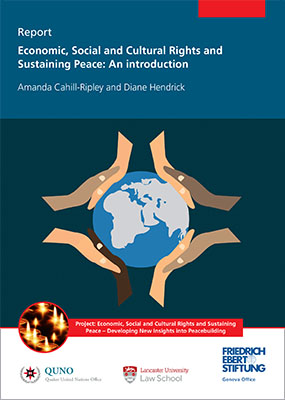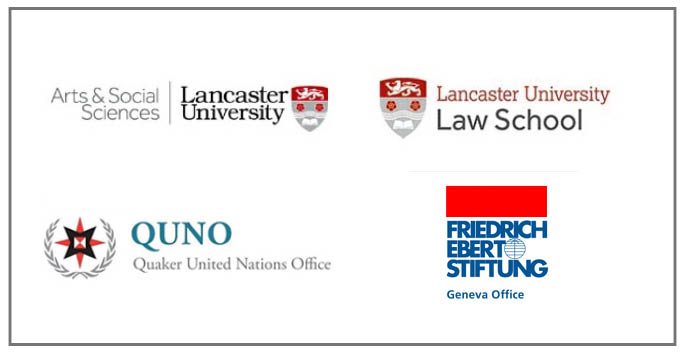The research's mission was to foster the exchange of knowledge, share best practices, and draw from diverse experiences related to the application of these rights within the realms of peacebuilding and human rights.
Key objectives for the project were to:
- Facilitate networking among both traditional and non-traditional stakeholders in peacebuilding, spanning areas such as economic, social, and cultural rights, transitional justice, conflict prevention, conflict resolution, post-conflict reconstruction, gender, security, and development.
- Drive forward pioneering ideas and practices in the fields of peacebuilding and ESCRs.
- Strengthen collaborations between academia, human rights advocates, and peacebuilding proponents, including prominent institutions like UN Peace and Security Institutions, UN OHCHR, and relevant UN agencies and NGOs.
- Create an open space for cross-institutional and cross-sector dialogue on realising rights, resolving conflicts, and maintaining peace.
- Foster a comprehensive understanding among practitioners and scholars of promising practices within the domains of peacebuilding and economic, social, and cultural rights.
The project originated at the University of Lancaster, then followed Dr Amanda Cahill-Ripley as Principal Investigator to the University of Liverpool in 2019. Dr Amanda Cahill-Ripley, alongside Florence Foster, QUNO Representative for Peace and Disarmament, and Hannah Peters, Programme Officer for Human Rights and Development at the Geneva Office of the Friedrich-Ebert-Stiftung, worked on the 2-year project.
This collaborative effort involved Lancaster University Law School, Quaker United Nations Office (Geneva), and the Geneva Office of the Friedrich-Ebert-Stiftung. It focussed on sharing knowledge, practices, and experiences in these areas across various disciplines, aiming to influence international and national policies and promote innovative approaches.
Findings
As the project unfolded, a noticeable gap emerged in terms of introductory information about the link between economic, social, and cultural rights and sustaining peace. This report seeks to fill that gap by contributing to the ongoing discourse on how these rights can contribute to peace. It primarily targets policy and practice communities involved in peacebuilding and human rights while also benefiting relevant academics through shared insights from research, policy perspectives, and practical experiences.
By fostering dialogue among diverse institutions and sectors concerning the realisation of rights, conflict resolution, and the maintenance of peace, the final report - Economic, Social and Cultural Rights and Sustaining Peace: An Introduction - and the broader project intend to strengthen the relationships between academia, human rights advocates, and peacebuilding stakeholders, promoting cooperative efforts for peace and justice.
This report served as a starting point in stimulating discussions and contributing to a robust debate. It's important to note that some crucial aspects related to economic, social, and cultural rights and sustaining peace, such as their intersections with environmental rights, natural resources, land, gender issues, the Women, Peace, and Security Agenda, and resilience-based approaches to peacebuilding, are highlighted but not explored in great depth here. These topics warrant further research and knowledge exchange to advance effective policy and practice in these areas.

Publications
- Report on Economic, Social and Cultural Rights and Sustaining Peace: An Introduction.
- 'Economic and social rights must be addressed to stop violent conflict and sustain peace' in The Conversation UK, 24 May 2018.
- Dr Amanda Cahill-Ripley and Karol Balfe brief the UN Committee on Economic, Social, and Cultural Rights, 13 April 2018.
Partners and Sponsors

Find out more
- Visit the Economic, Social and Cultural Rights and Sustaining Peace webpage
- View Dr Amanda Cahill-Ripley's staff profile
Back to: Liverpool Law School
